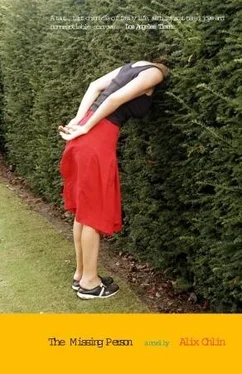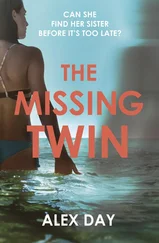Angus Beam walked to the kitchen counter, turned around, and smiled. An automatic silence fell over the room. “I don’t believe in rhetoric or public relations,” he said, “but I believe a small group of individuals has the power to make real changes. So let’s skip the speeches and get started.”
A soft, satisfied whimper rose up from somewhere in front of me and I realized that a woman in the crowd was breast-feeding her baby. Otherwise the room was quiet. The man with glasses crossed his arms. Hidden behind his broad shoulders and large head was the one I thought might be Wylie. When we were little, Wylie and I spent hours trying to develop our telepathic powers, guessing which cards were being held up, picking numbers between one and ten. Wylie, I thought now, it’s me.
Angus Beam looked around the room, smiling. “Time is of the essence,” he said, raising his hands. “Sprinkler systems, this wall. Forestry, other side. Fuel economy, to the back. Gerald, you’re with me, in the bedroom. Report on plans in half an hour.”
The crowd nodded like a small, obedient congregation. The person who might have been Wylie and the middle-aged man — Gerald, apparently — headed to the back, out of my sight, as people clotted into groups and started talking. Sweat gathered on my forehead and armpits and trickled down the small of my back.
“I can siphon the gas out of a Ford Explorer in under ten minutes,” said a man close to me.
“And then where do you put it?” a second man asked.
“It just has to be removed. One less SUV on the road, even if it’s temporary.”
“No, that’s useless. You have to show the gasoline somewhere, in quantity. Or all the stranded SUVs.”
A man next to me unrolled a blueprint and began pointing at it with a dirty fingernail. At his feet a brown lump I’d thought was a backpack uncurled itself and stood up, revealing itself as a dog.
“A revegetation campaign,” he said. “Guerrilla horticulture. We go to people’s houses and rip out, like, the California plants, right, and put in native vegetation. Free xeriscaping— those people will thank us later, man.”
“Sure they will,” somebody else said.
The noise level in the room throbbed and rose. I heard “industrial-agricultural complex” and “ranching subsidies” and “ecological catastrophe.” The dog, a skinny brown thing with protruding ribs, shook itself and padded into the kitchen.
“REM,” a man’s voice said. “It stands for Radical Equality Movement. It covers animals, plants, and humans. Everything.”
“That’s for sleep, man. Not to mention the band.”
“Shit,” somebody said in another corner. “We produce it but we don’t want to talk about it or deal with it. We take in whatever we want, then refuse to deal with the consequences of our own bodies. This culture is packed with philosophical and logistical constipation. That’s the real issue. It’s all about shit.”
What if we aren’t moving forwards in time? I have decided that progress is a lie. I stood up and tried to push through the crowd to the back room, but everywhere I turned was blocked. There seemed to be more people every second, murmuring and plotting pranks: digging up corporate gardens, taking stink bombs to shopping malls, spray-painting new subdivisions with antidevelopment slogans.
“Excuse me,” I kept saying, but as one person would step aside, I’d walk into another bare shoulder or hairy arm. The heat was suffocating. Finally, feeling dizzy and faint, I just pushed myself through a final wall of people into the kitchen, behind the counter, with the dog. I looked to the side, but the bedroom door was closed. In front of it, chatting with a tiny, wiry woman, was a man with a football player’s build, in a turquoise tank top that revealed thick armpit hair. He smiled at me politely. A moment later the wall re-formed. Three or four people sat on the counter, blocking my view. When I opened the refrigerator door, only bad-smelling air came out. There was no light, no cold, no food, nothing to drink. Suddenly I felt damp on my leg. The dog was licking my knee almost sadly, as if it couldn’t help itself, its eyes pleading and chagrined.
“Stop that,” I told it, but it kept licking and followed me as I backed up.
The woman who’d been nursing her baby broke through the people surrounding the kitchen. “Stop it, Sledge,” she said sharply, to the dog. “Stop that right now.”
The dog lay down instantly and hung its head in shame.
“I am quite sorry for that,” she said to me. She had an accent, something European. She rehoisted the baby in its cloth sling and held out her right hand. Her face was wide and pale, with broad, slanted cheekbones, and strands of brown hair curled delicately around her ears. The baby crouched against her chest like a frog.
“I’m Irina,” she said.
“Lynn,” I said, shaking her hand.
“Welcome,” she said. “Would you like something to drink? It is boiling with the heat in here.”
I gestured to the fridge. “There’s nothing in there.”
She laughed, a gold tooth glinting in her smile. “I have something.” She reached into the capacious sling where the baby was and fished around, then pulled out a glass bottle full of pulpy brown liquid and handed it to me. It was actually cold. “Apple juice,” she said.
“Thanks.” I drank some, and it was delicious, sweet and woody.
In her arms the baby gurgled happily. Its wide, pale face was shadowed and dimpled, like the surface of the moon.
“Are you one of these vandals?” I said.
Irina shrugged. “We all have different projects.”
“What’s yours?”
“Right now, to make sure you are doing all right.”
“You guys don’t seem very concerned about security.”
“What do you mean?”
“You let me in, and I heard all about these felonies you’re planning. I could turn you all in.”
Irina laughed again, and the moon-faced baby did too. I drank some more juice, and seeing the bottle was empty, she took it back and stuck it somewhere inside the sling. I wondered what else she had in there.
“But you’re a friend of Angus,” she said.
“I don’t know Angus. I’m here looking for my brother. Wylie.”
“Yes,” she said. “Wylie. I don’t think he’s here.”
“I saw him.”
“Did you? What I am thinking is he is not here.”
Around us, the buzz of the room rose and hissed and began to roil. I saw a bottle passing from hand to hand. A woman’s laughter sounded loud and shrill above the din, repeating at intervals, like a ringing telephone. In one corner a man strummed a guitar and sang a country song. It was turning into a party.
Then the bedroom door opened and Gerald walked out through the crowd and left the apartment without speaking to anyone. No one acknowledged him, but on the other hand they all moved aside so that he could get by. When Angus came out, the music stopped and the same immediate silence fell.
“Reports, to me, now,” he said, then turned on his heel and went back into the bedroom, followed by three or four people. The door closed, and the party started up again. I thought I smelled pot. Irina was rocking her baby back and forth.
“What is this?” I asked her.
“Just people who want to be living differently,” she said.
Still dizzy and hot, I leaned back against the counter and looked down at the floor, where a cockroach was nosing around the curling edge of the linoleum, its antennae languidly twitching.
Irina put a hand on my shoulder. “You would like to go outside in the fresh air?”
I nodded and followed her out of the apartment. After the press of bodies, the night air was blissfully cool. The moon still hung low in the sky, and the baby cooed at it. We walked slowly down the dark street, the sound of the party fading behind us.
Читать дальше












